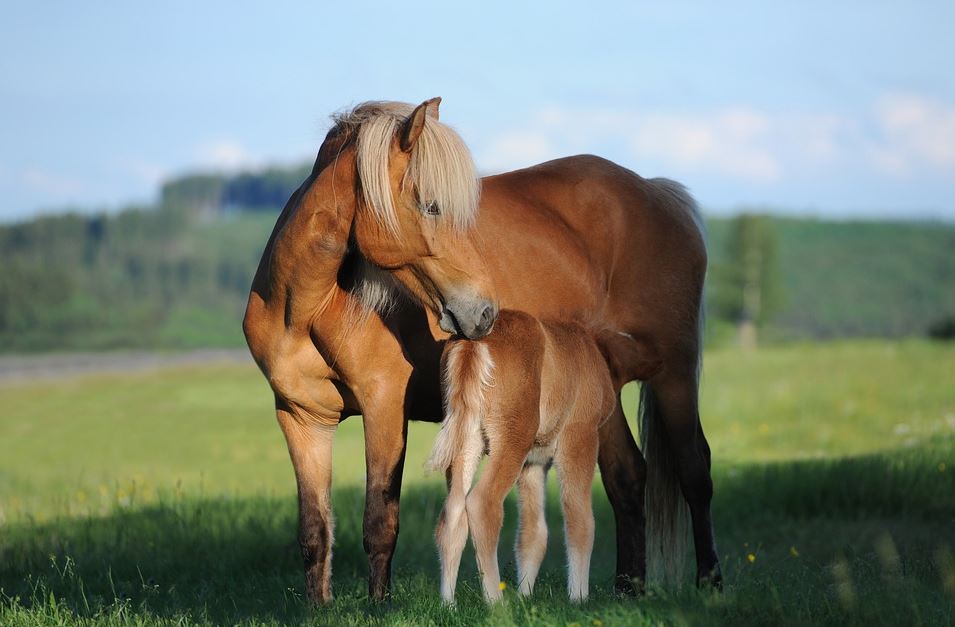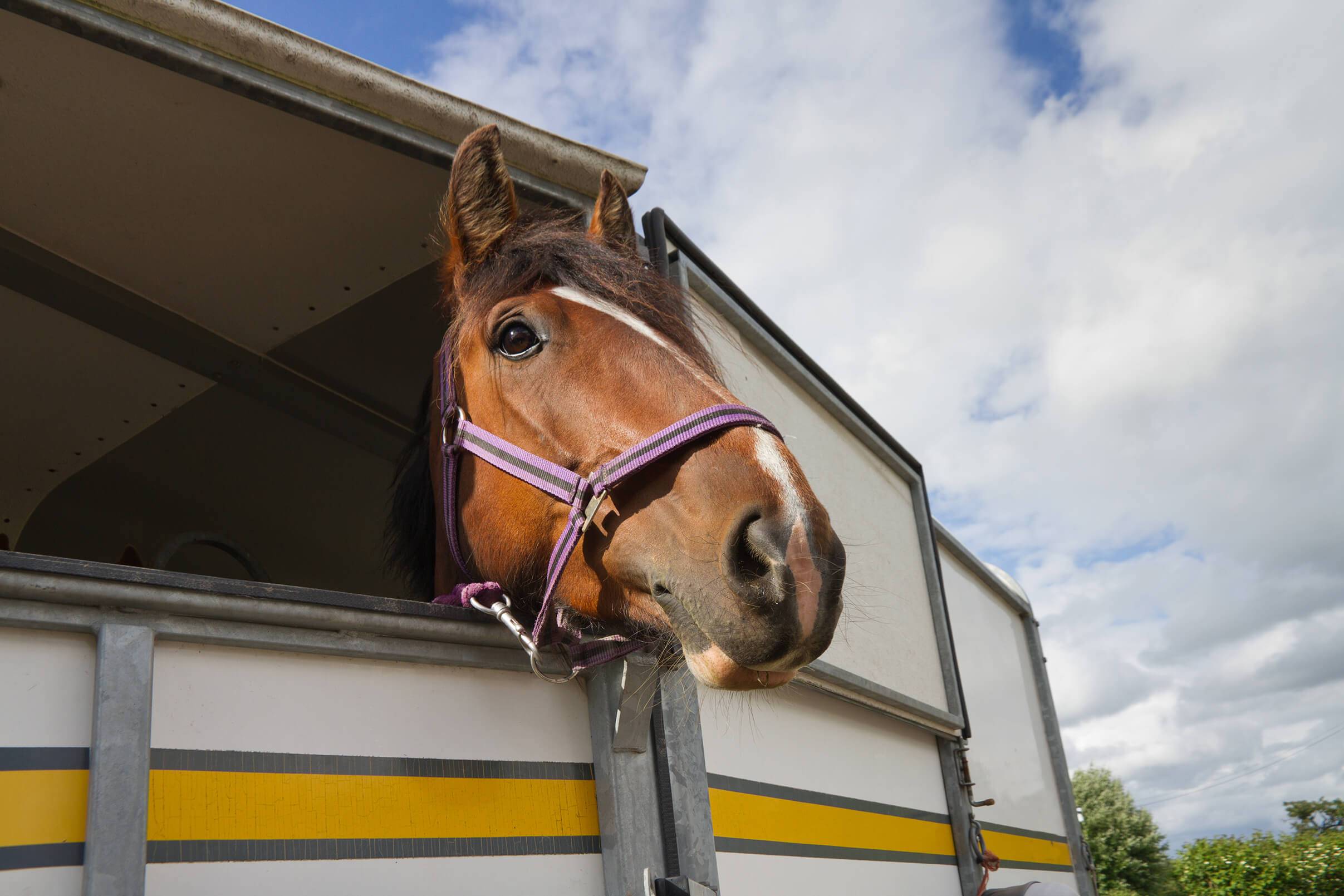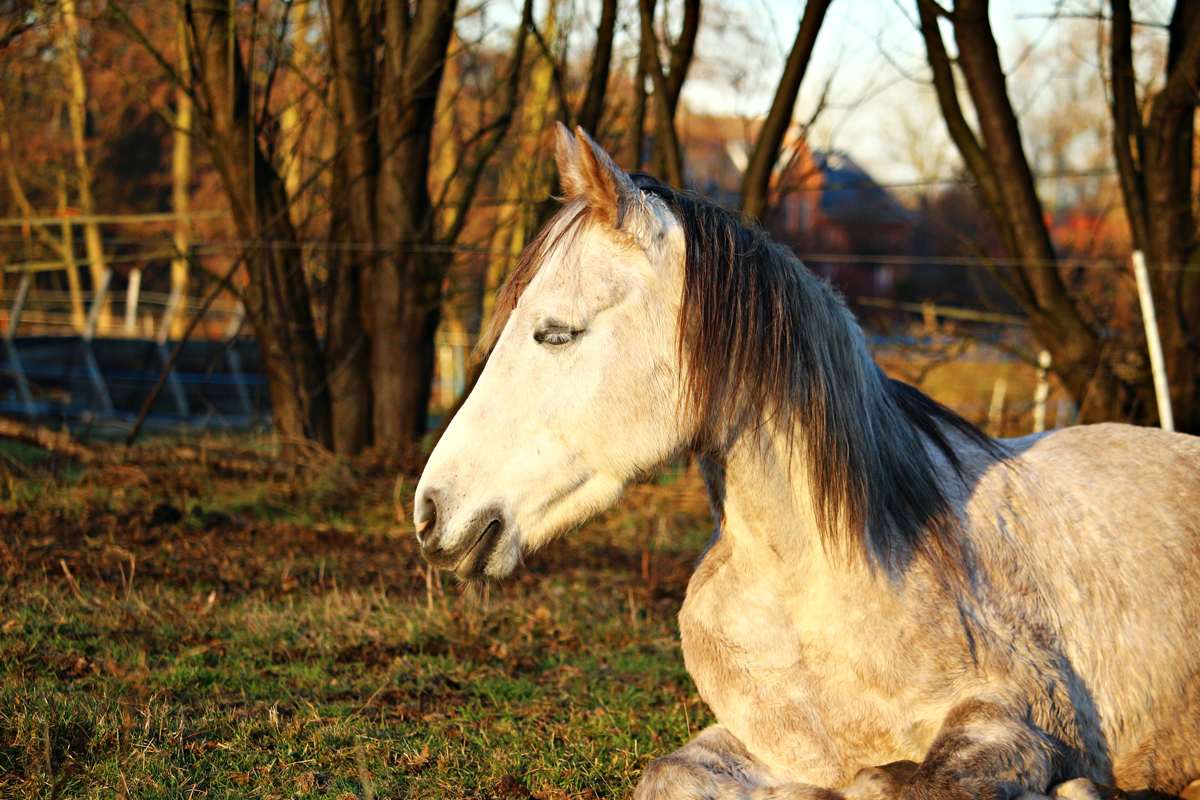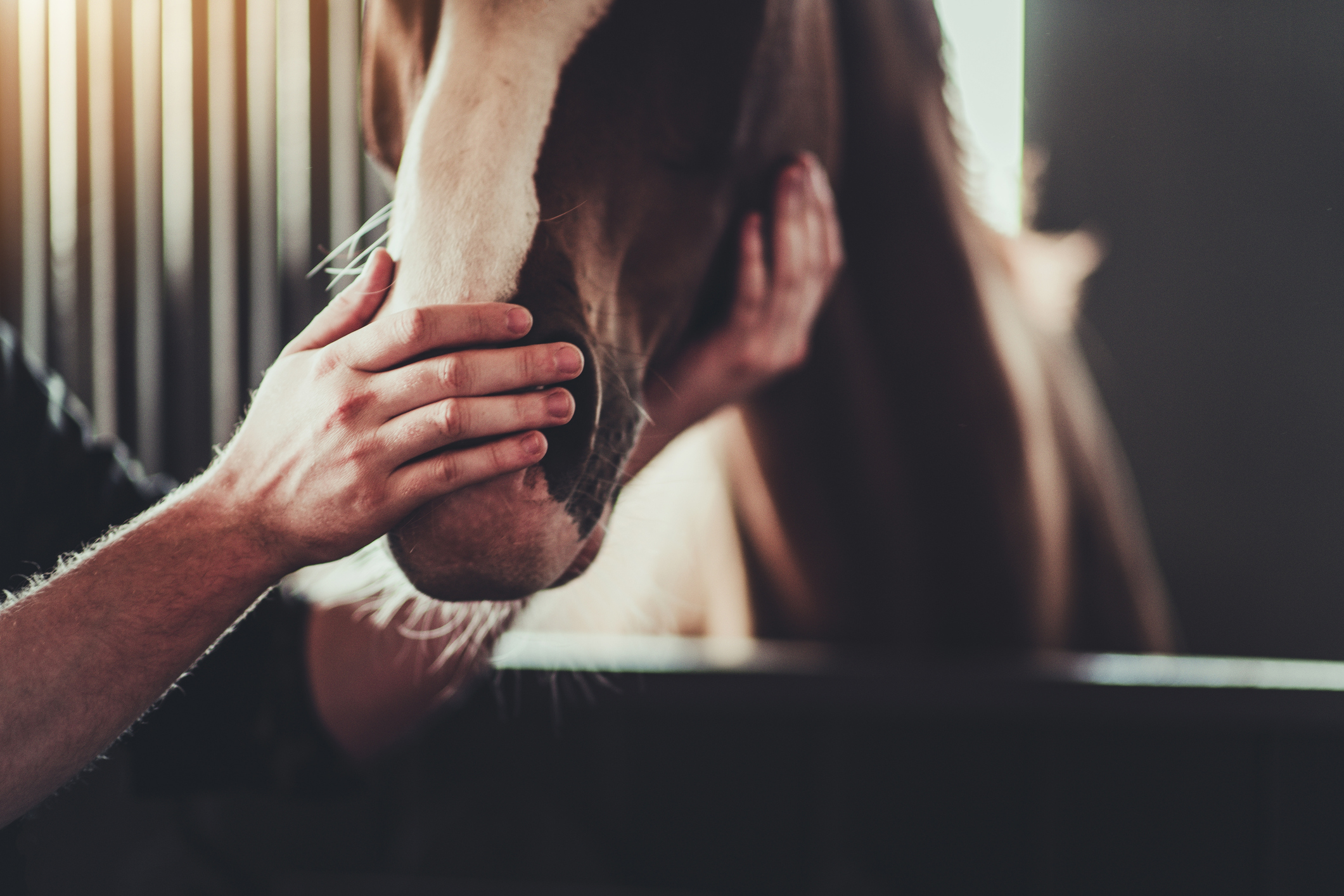As a horse lover, you’ll want to keep your animal in the very best of health. Vaccinations are an essential weapon in the fight against equine disease. They not only protect your horse or pony against certain nasty illnesses, but also limit the spread of disease.
So what should you be aware of before immunising your horse? What vaccinations are available, and when should they be administered? And what do you need to know about protecting your animal’s health through insurance for horses?
We’ve put together a list of several dos and a few don’ts about horse vaccinations to inform and reassure you. Read on to find out more.
Do make sure your horse has the correct core vaccinations
In the UK, horses are routinely vaccinated against two diseases: influenza and tetanus.
Influenza
A highly contagious disease that affects the respiratory tract. It can be spread between equines directly, through inhalation of the airborne virus; or indirectly, by touching equipment that an infected horse has used.
Symptoms include a cough, runny nose, and general unwellness, and it’s likely to be several weeks before your horse is back to good health.
It’s essential that you consult your vet, as influenza can weaken your animal and make it more likely to pick up a secondary infection. Influenza can also develop into serious breathing conditions.
If your horse is infected, you need to isolate it as quickly as possible and carry out extensive cleaning and hygiene measures to prevent the virus from spreading.
You can vaccinate your horse against the most common strains of influenza, which are continually changing. Vaccination is compulsory if you want to enter your horse into equestrian sporting events.
Tetanus (lockjaw)
Caused by a bacterium which is commonly found in the soil and horse dung. It enters the horse’s body via wounds, which are often caused by kicks but can be as small as those from a thorn.
Symptoms show after a few weeks, and include stiffness and muscle spasms. You may also spot your horse is holding its tail out, flaring its nostrils, and has a wide-eyed expression. It may also have a high fever, and demonstrate difficulty chewing.
If your horse is unvaccinated and receives a wound, your vet can give it a shot of tetanus anti-toxin. However, you might not even notice some puncture wounds, which often close up quickly.
Unvaccinated horses which contract tetanus will usually die shortly after symptoms develop: it’s thought that fewer than 10% survive. Extensive veterinary treatment and nursing may save your animal if you’re lucky – equine insurance may help pay the fees.
Vaccination is far simpler and more successful. Newborn foals will be given an injection of tetanus anti-toxin to protect them until their immune systems are ready for the vaccine.
When your horse is a few months old, it can have its first dose, followed by a second four weeks later and a booster at 12 months.

Do consider additional vaccinations
There are several other vaccinations available in the UK, so talk to your vet about which ones are advisable for your horse or pony.
Strangles
Is a nasty and highly contagious disease that’s caused by a bacterium. Its chief symptoms are thick nasal discharge and swelling of the horse’s lymph glands on its head and neck. If left untreated, these can develop into abscesses.
Call your vet immediately, as early treatment with antibiotics is vital. You’ll also need to isolate your horse and carry out strict hygiene measures.
Horses from the age of four months can receive two shots, four weeks apart. The strangles vaccine is very new, so ask your vet if you’re unsure about whether it’s necessary for your pony or horse.
Equine Herpesvirus 1 and 4 (rhinopneumonitis)
Are common conditions that generally cause nothing more than a moderate fever, a runny nose and a cough. Usually, your horse will recover within a few weeks.
However, these viruses can also cause pregnant mares to miscarry, so vaccination can be recommended. Your horse will need a primary course of two vaccinations given four to six weeks apart.
In rare cases, equine herpesvirus can lead to neurological diseases which are hard to treat and sometimes leave vets with no option but to euthanise the horse. Sadly, the vaccines do not protect against neurological disease.
Equine viral arteritis
Is fortunately very rare in the UK: it can cause pregnancies to fail, and the death of young foals. It is mainly spread through mating; by artificial insemination; and from mares to foals during pregnancy or through milk.
It’s a notifiable disease, so you must tell the authorities if it’s found in your stallion, or in your mare within 14 days of mating or artificial insemination.
Look out for signs including conjunctivitis; swellings around the legs and hindquarters; and lethargy and stiff movements. However, often, infected horses show no clinical symptoms, so it’s wise to test horses before mating.
Talk to your vet about vaccinating breeding stallions and mares.
Travel vaccinations
The above vaccinations are those that your vet may advise for equines based in the UK. If you’re travelling abroad with your horse, or exporting it, you’ll also need to look into which vaccinations are advised for your destination country.

Do give pregnant mares extra shots
You can help protect foals who are too young to receive vaccines by immunising their mothers shortly before they give birth.
This increases the antibodies found in the first milk (colostrum), providing foals with protection against diseases.
Rota virus is a disease that causes diarrhoea in young foals. Although it’s rarely fatal, it is highly unpleasant, so pregnant mares should be given doses of vaccine at the eighth, ninth and tenth month of pregnancy.
Mares should also be given extra doses of tetanus vaccine about four to six weeks prior to foaling; and herpesvirus shots at the fifth, seventh and ninth month of their pregnancies.
Do aim to build herd immunity
As a general rule, it’s a good idea to build up herd immunity. So even if your own horse is not at risk from a particular condition itself, getting it vaccinated can drive down infection rates and protect other equines.
Potentially, widespread vaccination could even lead to certain conditions being eradicated.
Do make sure your horse is well before its immunisations
While side effects are very rare, they’re more likely in horses that are unwell at the time of vaccination.
Before administering the jabs, your vet will ask you if your horse has a temperature or any other sign of illness such as a raised heart rate. If so, they may decide to delay the vaccination until your animal has recovered.
Do look out for adverse reactions
Equine vaccinations are very safe, with millions of doses being given worldwide every year without serious side effects.
The benefits far outweigh any risks, but your horse or pony may experience some mild or moderate effects, such as a small lump or soreness at the injection site. It may also feel under the weather, so avoid exercising your horse strenuously for a day or two afterwards.
Keep an eye on your animal for 20-30 minutes after the vaccination in case of an extremely rare reaction such as anaphylactic shock. This is a health emergency, so contact your vet straight away. Horse insurance will help cover the cost of vets’ fees.

Do remember that immunity takes time to build up
Your horse is not fully protected from disease until two or three weeks after each inoculation. That’s how long it takes for an immune response to develop.
So if your horse needs vaccines for a particular event, make sure you get them done well in advance. The event organisers will provide guidelines.
Do get booster shots at the right intervals
To keep your horse’s protection up to date, it will need booster shots.
A tetanus booster is required every two years. Equine flu requires an annual shot, with a six-monthly booster if you want to enter your horse in events.
For strangles, revaccination is needed every three months, and for herpesvirus, it’s every six months.
Do keep good records of all vaccinations
All vaccinations must, by law, be recorded in your horse’s passport. Your vet will do this for you.
If you’re entering your horse into sporting events, the organisers will ask to see its passport. Horses that are not not up to date with their influenza vaccine schedules will not be allowed to participate.
This record also serves as a handy reminder of when to book your horse’s booster shots.
Do look out for new vaccinations
Veterinary research scientists are continuously researching possible new equine vaccines for some of the nastier diseases around. Your vet will let you know if there are any new ones on the market that would be suitable for your horse or pony.
In fact, research into a vaccine for the equine West Nile Disease (a disease that’s not found in the UK) later contributed to the development of one of the human Covid-19 vaccines!
Sadly, trials of a vaccine for grass sickness in 2019 proved inconclusive. This disease occurs among grazing horses, and is often fatal.

Don’t worry about over-vaccination
Equine vaccines are safe and well established. Even new ones, such as the strangles vaccine, have been through rigorous clinical trials.
So if you’re not sure if a horse has been vaccinated against a particular disease, get it done again. While it’s irritating and inconvenient, it won’t harm your animal. Better safe than sorry!
Don’t skip vaccinations due to Covid-19 concerns
In 2020, the British Horseracing Authority relaxed influenza vaccination requirements for horses competing in equestrian sporting events due to the logistical challenges of keeping up with booster shots during the Covid-19 pandemic.
However, normal rules now apply once more: your horse will need to have completed its primary vaccination course and had a booster shot in the six months prior to any event.
Vaccines remain an essential part of equine care, but veterinary practices are likely to introduce Covid-safe measures for the foreseeable future.
These could include asking you to wear a face covering and stay two metres away from staff; and limiting the number of people who can bring a horse to its appointment.
Don’t become complacent about animal care
While immunisations are vital, they’re not the be-all and end-all of excellent horse care.
You need to practise good hygiene, sanitation and biosecurity measures to protect your horse from disease and prevent illnesses from spreading. The right nutrition and plenty of exercise are vital for your horse’s health, too.
Plus, there are many conditions for which there’s no vaccination. Look out for signs of common equine conditions such as ringworm, rain scald, or sweet itch, and contact your vet if you have any concerns – insurance for a horse may help cover the cost.
In the case of more serious conditions, including colic and laminitis, early detection and treatment could even save your horse’s life.
If you want to transport your horse or pony out of the UK, you need to get it tested for equine infectious anaemia. In the unlikely event of your horse testing positive, you’d have to notify the authorities – but rest assured, there have been no outbreaks in the UK for several years.
Owning a horse is a highly responsible undertaking. But with the right care and suitable horse insurance, your animal should stay healthy and happy for years to come.
Get a quote from Equesure today
At Equesure, we love horses and ponies as much as you do.
We’re specialists in arranging horse insurance policies to suit your budget and your animal’s needs, whether it’s a foal, a competition horse, or a veteran.
Benefits of the cover we arrange can include vets’ fees up to £4,500 per incident, with an unlimited number of claims within the policy year.
Cover is also available for personal dentistry up to £1,750; personal accident up to £20,000; saddlery and tack; public liability; loss of use; death, straying or theft; and EU travel.
Whatever cover your horse requires, we’ll endeavour to find a policy that suits. Contact us today for a quote.
Policy benefits, features and discounts offered may very between insurance schemes or cover selected and are subject to underwriting criteria. Information contained within this article is accurate at the time of publishing but may be subject to change.







